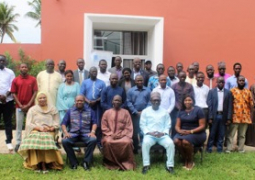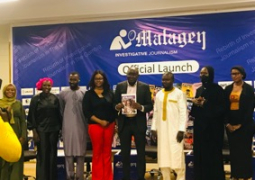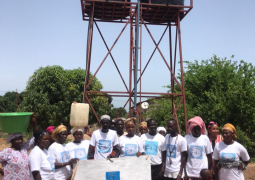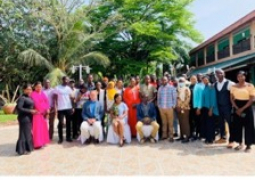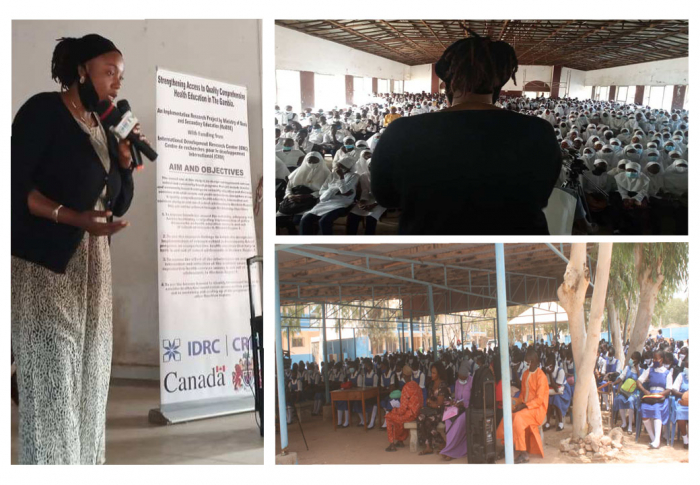
The Comprehensive Health Education (CHE) under the project - Strengthening Access to Quality Comprehensive Health Education in The Gambia is an implementation research project undertaken by MoBSE with funding from International Development Research Center (IDRC). It is meant to enlighten and educate in and out-of-school students on Adolescent Sexual and Reproductive Health (ASRH).
43 schools will benefit from the dissemination process of the Comprehensive Health Education research findings.
Addressing students and their teachers, Mrs Phebian Ina Grant-Sagnia, principal investigator of the project for Strengthening Access to Quality Comprehensive Health Education for in-and-out of School Adolescents in Region I, The Gambia, who is also a Principal Health Researcher Ministry of Health gave a comprehensive knowledge on CHE.
She said the initiative seeks to engage students and teachers on some key findings from the research and as well the recommendations made during meetings with different stakeholders.
The principal investigator during her lectures in both schools dwelled on different sexual and reproductive health issues.
At St Joseph’s Senior Secondary School, Marie Therese, one of the school councilors, said it is an interactive exercise which has given them insightful knowledge about the reproductive health matters.
She said the exercise gave them knowledge of some health issues that their parents never discuss with them at home.
“Some parents considered it wrong culturally to discuss reproductive issues with children at home,” she stated.
“The speaker (principal investigator) has made it known to us something that we need to know about our bodies such as treatable and non-treatable sexual transmitted infections, age of puberty, our rights, gender based violence and so on as a young girl or lady.”
Precious M. Camara, also a student applauded the MoBSE and team. “She had outlined some reasons why people (parents or elders) don’t talk/discuss reproductive health issues with us (children) and this includes culture, shyness, lack of knowledge, so these had made them think it is abomination to discuss it with us (children)”
Students of these schools applauded the initiative and approach of the presenter as they want more of the sessions across schools in the Gambia.
In her opinion, Mrs A. Anyanwu, Economics teacher said students were elated about the session “because they are having one or more reproductive health issues but cannot open up to discuss it freely. With these types of forum they have realised that it is all about their bodies and health.”
She maintained that some of them are sexually active and to protect them and their career they need more enlightenment on adolescent sexual and reproductive health which comprehensive health education can address.
Mrs A. Touray, French teacher described CHE as a good platform for students most of whom are very shy “but having this type of exercise they will be able to learn a lot to be vigilant, careful and self-conscious.”
With questions students asked, she said it is obvious that they will have second thoughts on what to do or are doing.
She encouraged MoBSE and team to include it in not just only secondary school curriculum but even at the “tertiary education level while access should not be limited to Greater Banjul Area alone.”


